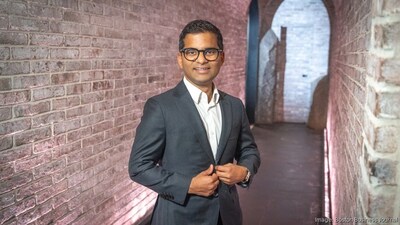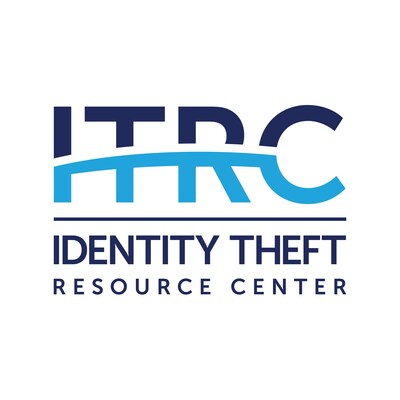New Research Finds EarlySense’s Contact-Free Sensor Accurately Detects Sleep Apnea and Disordered Breathing in Children
Press Releases
Jul 12, 2017
RAMAT GAN, Israel, July 12, 2017 /PRNewswire/ —
EarlySense, the market leader in contact-free continuous monitoring solutions, announced today new research indicating that its EarlySense Live™ home-based sensor accurately detects sleep apnea and sleep disordered breathing (SDB) in children, when compared to polysomnography (PSG), the testing process used in clinics around the world to detect sleeping disorders. The contact-free system showed nearly 90% accuracy compared to the gold standard and calculated the Apnea/hypopnea index with a 0.9 correlation to sleep lab results. The clinical results were presented at SLEEP 2017, the annual meeting of the Associated Professional Sleep Societies, LLC (APSS).
The new research comes on the heels of EarlySense’s receipt of U.S. patent # 9,681,838 for a monitoring system that identifies individuals undergoing an apnea episode and for predicting an apnea episode, to enable immediate intervention. It also follows a previous study that evaluated contact-free continuous monitoring for measuring obstructive sleep apnea in adults, published earlier this year in the ATS Journal.
The new study, led by Prof. Asher Tal, Head (Emeritus) and founder of the Pediatric Pulmonary Unit and Sleep Center at Soroka Medical Center, evaluated children that were referred to a sleep study with suspected SDB. The children underwent full overnight PSG in a sleep laboratory, and were simultaneously measured with EarlySense’s piezo-electric (PE) sensor. The PE system measured both sleep/wake and apnea/hypopnea events to enable an accurate Apnea-Hypopnea-Index estimation. The sleep scoring and Apnea-Hypopnea-Index (AHI) detections of the PE contact-free system were compared to PSG based manual scoring of an expert sleep technologist, according to American Academy of Sleep Medicine (AASM) guidelines.
“The results of this study suggest that the tested sensor may be used in the future for at-home screening of children for sleep-disordered breathing for several consecutive nights, in their natural home setting,” said Prof. Tal. “Accurately tracking sleep breathing patterns in children from the comfort of home, without any wires, holds great promise for the future of sleep medicine and eliminates long wait times typically associated with sleep lab appointments. It also allows parents to confer with pediatricians and determine if further sleep lab diagnosis is required.”
Launched in early 2017, EarlySense Live™ provides users, their families and caregivers with accurate information regarding heart rate, breathing cycles, stress and sleep indicators. The at-home solution leverages EarlySense’s core medical monitoring technology which has been successfully implemented globally in hospitals, rehab and skilled nursing facilities.
“Sleep apnea is a significant health risk that affects millions of people worldwide, and can result in reduced productivity and poor school performance. It is also associated with hypertension and cardiovascular disease if left untreated. Despite this, it remains a severely under-diagnosed condition,” said Zvika Shinar, Chief Scientist of EarlySense. “This study highlights the clinical accuracy of EarlySense Live and its ability to effectively detect breathing disorders without ever touching the person being monitored. Home-based contact-free monitoring is the new frontier in personal health and we are pleased to provide a solution that helps families facilitate better health choices.”
References:
- Sleep-disordered breathing and school performance in children
- Obstructive Sleep Apnea in Children: Implications for the Developing Central Nervous System
- Untreated sleep apnea in children can harm brain cells tied to cognition and mood
About EarlySense
EarlySense® provides contact-free, continuous monitoring solutions for the medical and consumer digital health markets. EarlySense’s integrated sensor utilizes Artificial Intelligence (AI) and big data analytics to provide actionable health insights and improve clinical outcomes.
Used worldwide in hospitals, rehab and skilled nursing facilities, EarlySense assists clinicians in early detection of patient deterioration, helping to prevent adverse events, including code blues which are a result of cardiac or respiratory arrest, preventable ICU transfers, patient falls and pressure ulcers.
EarlySense® Live™ is the first at-home consumer health monitor powered by EarlySense’s medically-proven sensor and AI analytics. Live is particularly useful for tracking the health and sleep of the aging population and children, to help facilitate better health choices.
EarlySense has partnered with leading global technology companies including Samsung, Welch Allyn, iFit and Beurer. The company is based in Ramat Gan, Israel and Waltham, MA.
For more information, visit http://www.earlysense.com and http://www.livebyearlysense.com.
Follow EarlySense on LinkedIn, Twitter and Facebook and EarlySense Live on Facebook and Twitter.
Media Contact:
Ellie Hanson
Finn Partners
+1-929-222-8006
[email protected]
Company Contact:
Hila Peleg
+972-54-527-3117
[email protected]
SOURCE EarlySense



